History
Badsey First School aims to provide a history curriculum which develops knowledge through engaging lessons. We believe that all children should have high aspirations gained from inspirational, significant individuals who have impacted history and our lives today. Knowledge is rooted through chronological understanding of periods of time. Children will be able to debate their views with confidence and empathy, by rooting their discussions in sound factual knowledge and key historical vocabulary. Through enriching experiences, such as Past Presents, Black History Month and the use of challenging sources, the curriculum is designed to build a clear understanding of human experiences beyond everyday life. Every child at Badsey can draw inspiration from figures throughout our history curriculum and aspire to use their historical understanding to develop their own sense of belonging and a deeper appreciation of the world around them.
History is a subject which enables children to engage with the past – learning about people of significance, be inspired to research famous events, roll their sleeves up for the nasty, gory stuff and discover some simply mad stories.
The National Curriculum encapsulates History as:
- Ordering events in time
- Finding differences and similarities,
- Writing and talking about the past.
- Using different sources for information, and
- Asking and answering questions.
We follow the Primary National Curriculum for History in England
We have carefully mapped the history curriculum so that it is progressive and children build upon their learning. Unit guides support teaching with core knowledge, disciplinary knowledge and vocabulary clearly defined.
Discover more about our History Curriculum at Badsey from the documents below:
History Curriculum Progression
Through different periods of time, children will develop historical concepts of:
- Chronological understanding, for example through learning about where the Stone Age, Bronze Age and Iron Age fit within history.
- Continuity and change, for example through exploring ways in which the local community has changed and stayed the same over time in a local history case study.
- Cause and consequence, for example understanding the cause of the Great Fire of London and the consequences that this had.
- Similarity and difference, for example through learning about the similarities and differences between Ancient Civilisations.
- Significance, for example through understanding the significance of Boudicca.
History in the Early Years
In Reception, the early learning goals are focused on the memories of a child – for example, reflecting on a special event or family custom. Children will also explore differences, considering different family members and the concept of generations within the family.
History in Key Stage 1 (Years 1 and 2)
The National Curriculum for Key Stage 1 asks children to learn about specific people or events that are both within and beyond living memory. In these year groups, the children develop a grounding of what History is and this foundational learning is revisited and built upon in Key Stage 2. Teachers are given the opportunity to help children make comparisons between ‘then’ and ‘now’. At Badsey, we learn about significant people and events, such as Rosa Parks, Neil Armstrong and The Great Fire of London. Themes such as Toys and linking learning to our local setting of Evesham also lend themselves really well to helping the children learn about the past.
History in Key Stage 2 (Years 3, 4 and 5)
In Key Stage 2, children will learn all about the following periods of British history:
- Stone Age to Iron Age
- Ancient Civilisations
- Roman Britain
- Ancient Egypt
- Anglo-Saxons
- Ancient Greece
The children develop their understanding of chronology, continuity and change, cause and consequence, similarity and difference and significance throughout these units and develop their understanding from Key Stage 1 to Key Stage 2.
Year 5 Anglo-Saxon day
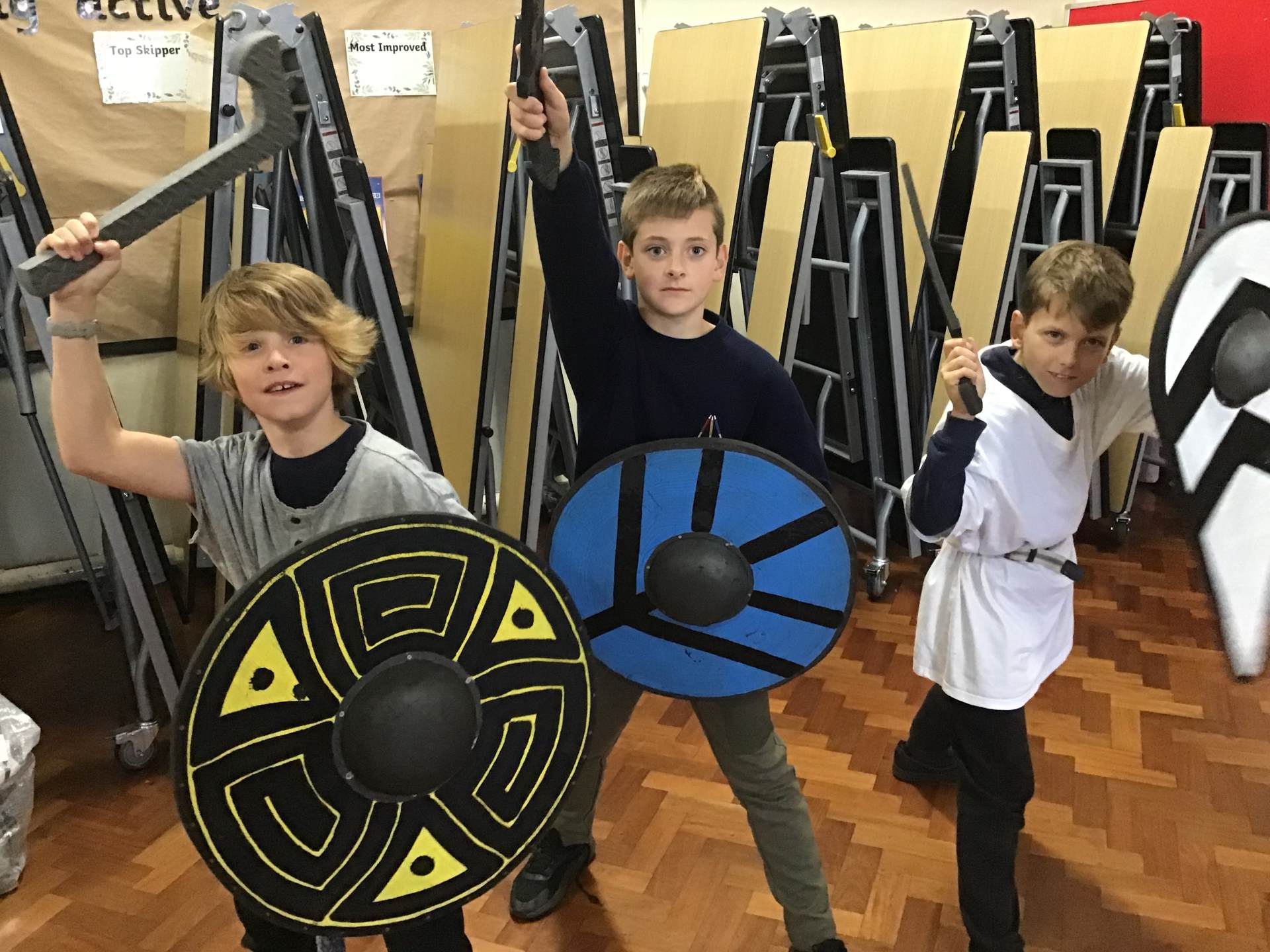
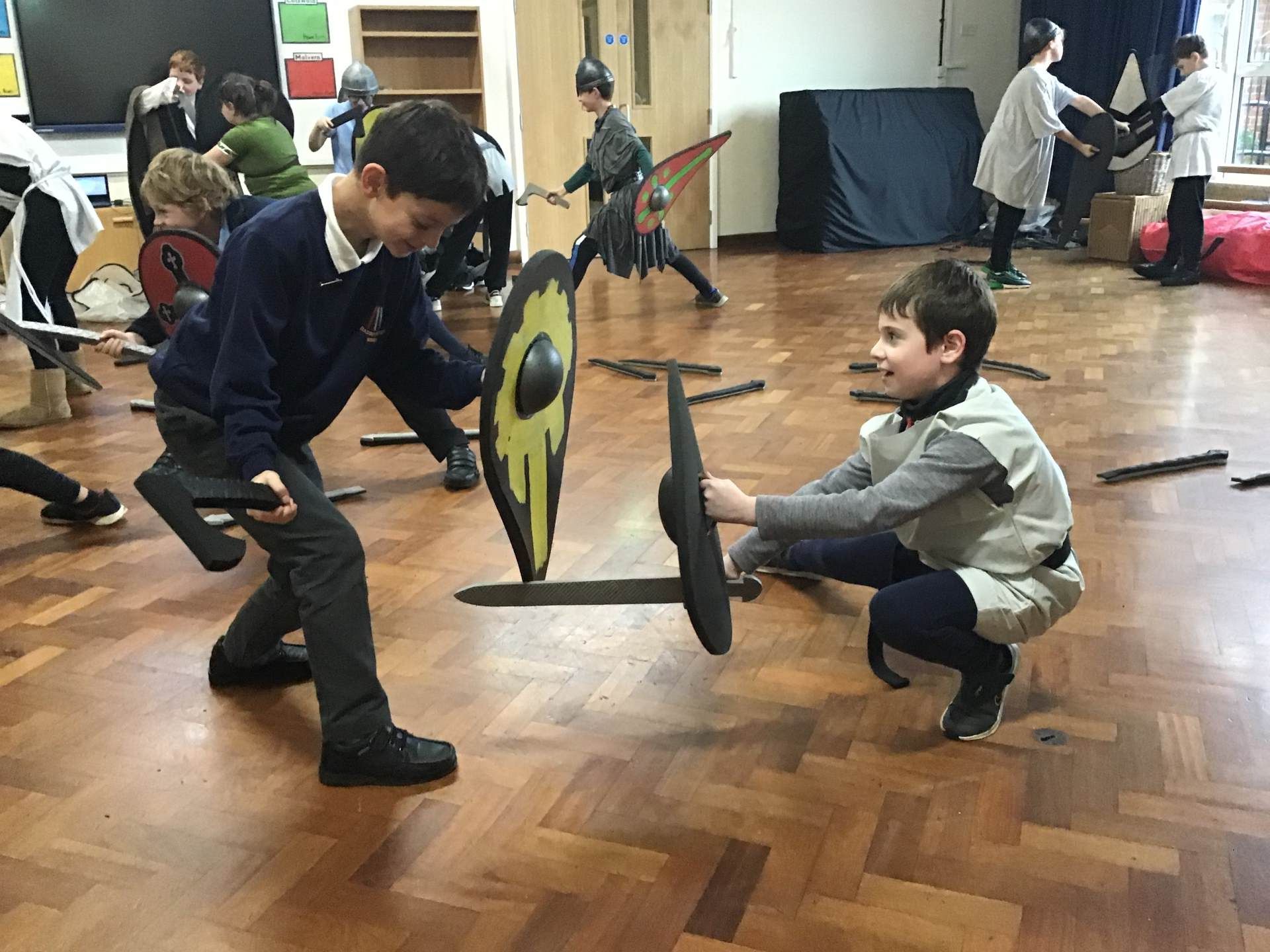
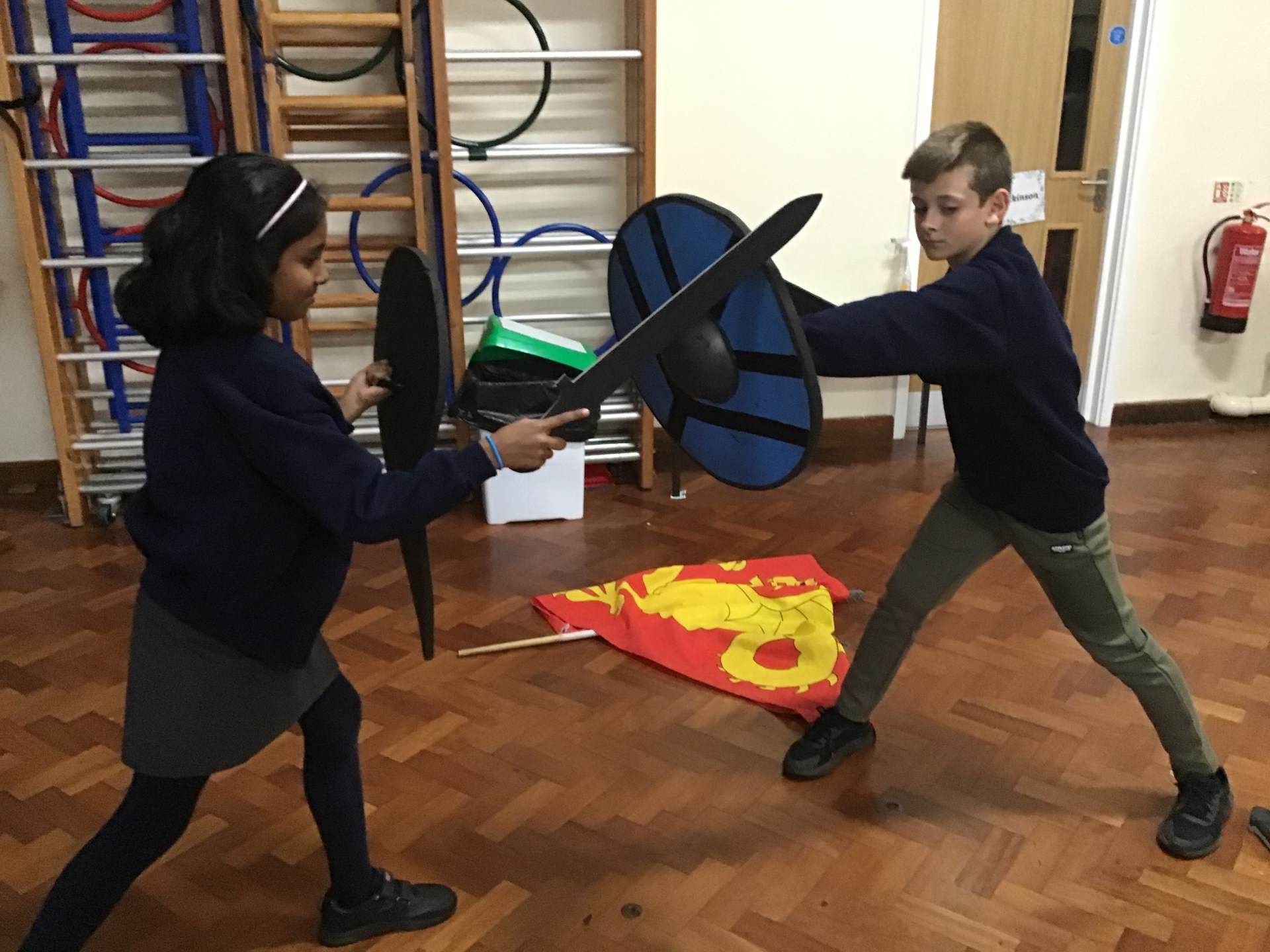
Year 3 transport through time trip

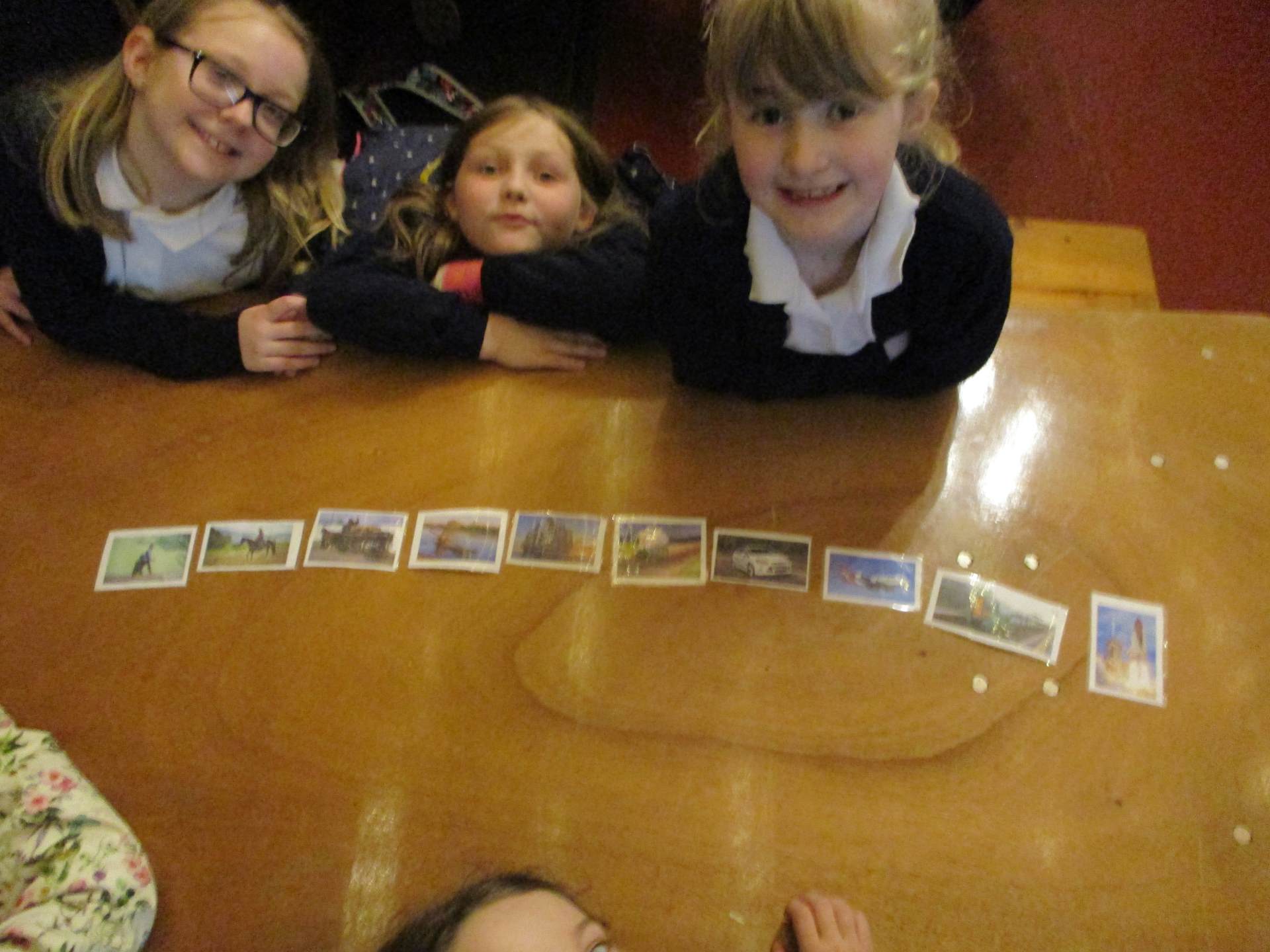
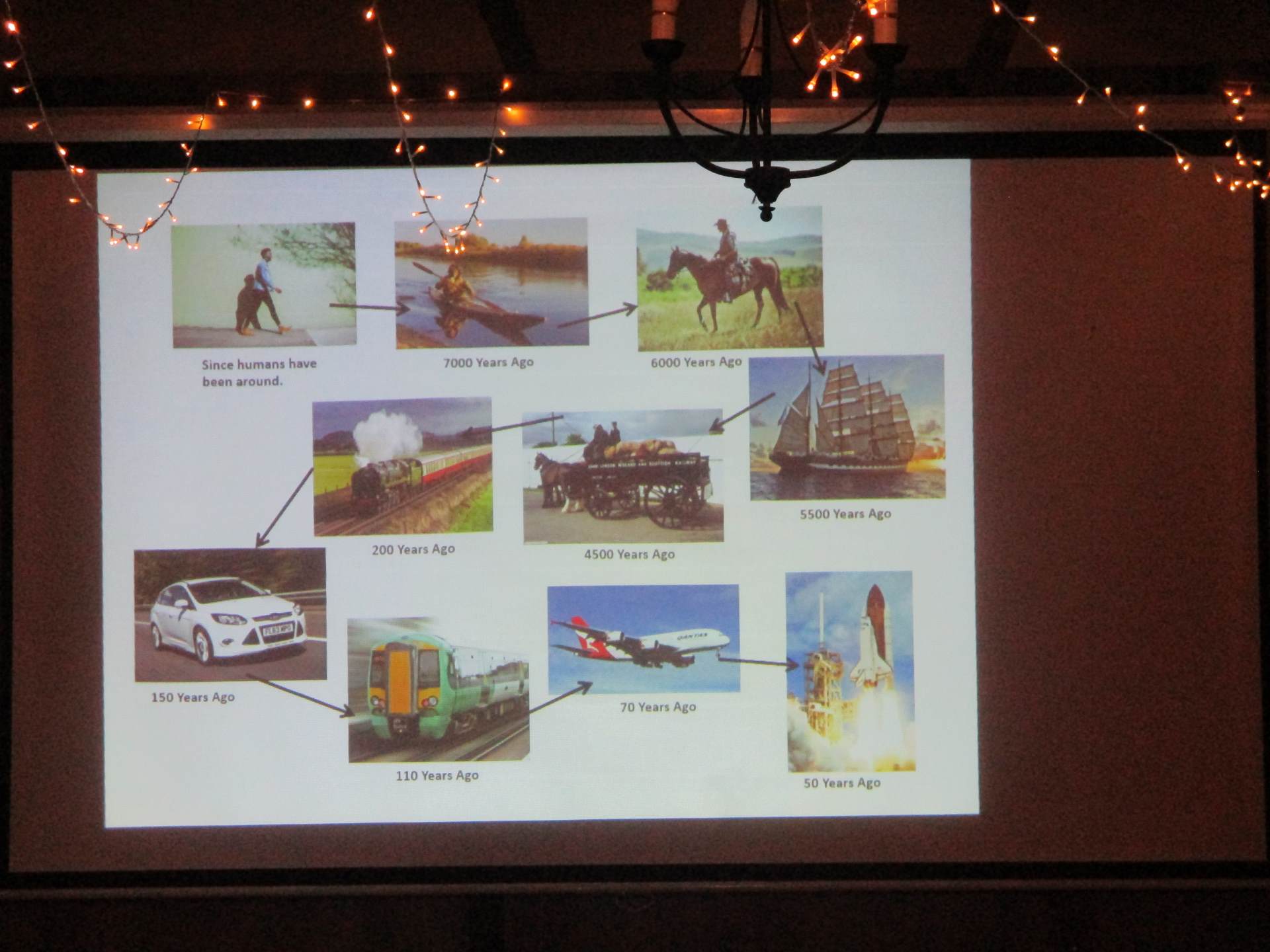
Parent Advisory Group quote 2022: History should be to know historical events and put them in the right chronological order. Our children should understand how events of the past impact our lives today. Knowing local history is also important to help our children link to their community.
Supporting Your Child at Home
Share your family history
Make history relatable by sharing your own family history with your child. Share fun memories of the people and places in your childhood, and encourage your child to talk about their favourite memories as well. Share photographs with them from the past and talk about the differences between then and now.
Books and television
Use books or TV programmes as a conversation starter about the past. Read about people and events that have made a difference in the world, and let your child know that these people were not unlike your child. Try visiting your local library to discover a wider range of books.
Commemorate important historical events
Make your child aware of historical events such as Remembrance Day. Discuss why they are important and think of ways you can commemorate them together. Watch the news together and explain what is happening and why.

 Badsey First School
Badsey First School